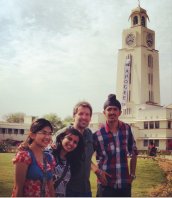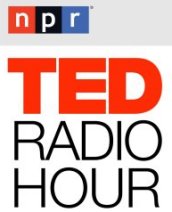In April of this year, I attended Fractal’11, a truly unique conference in Medellin, Colombia, that explored the convergence of fiction, art, science and technology. The event was the perfect forum for me to talk about my winding career path, which began in an English PhD program, meandered through a Web start-up and an international multimedia company and deposited me, quite happily at the Norman Lear Center.
One of the many fascinating themes of the conference (I explored several others here) was the appeal of infotainment, material that serves two seemingly unrelated purposes: to occupy attention agreeably (as the Oxford English Dictionary defines “entertainment”) and to transmit practical information that may just contribute to your survival.
My talk about Entertainment as Virtual Reality focused on the ways in which entertainment – catchy pop songs, video games, movies, opera, toys, etc. – could be understood as simulations, little virtual reality machines that allow us to test our ideas about the world in safe, artificial spaces. Regardless of how distracting a cultural object may be, it is also a powerful transmitter of information about our world, and it can have a surprisingly profound impact on our lives well outside the movie theater, concert hall or American Girls store.
Elkin Echeverri, an electrical engineer and Renaissance man, shed more light on these issues in his mind-bending talk about human bandwidth. (In fact, the conference’s marvelous translator tore his headphones off at one point complaining that his brain was frying from Echeverri’s far-reaching and fast-paced talk. Mine was, too; thankfully, I didn’t have the task of translating it in real-time.)
I was enthralled by his presentation because it touched on several research projects that I’m pursuing at the Norman Lear Center, including an exploration of the “attention economy” and the business and culture of social media.
Echeverri discussed the raw processing power of human brains (they process external stimuli at about 9.4 gigabytes a second) – an apropos topic for a conference devoted to “decoding the present.” But perhaps more fascinating were the primal predilections of the organ that basically determine our perceptions of reality. For instance, people smile “naturally” (i.e., in a reflexive fashion) to unexpected things – surprises that catch us off guard. The implication? Happiness has some fundamental relation to novelty. Further, Echeverri argued that pleasure comes from satisfying a need to consume new information: since information is vital to our survival, this is a fortunate confluence of need and desire. In this schema, solitary confinement is an incredibly effective form of torture.
At the Lear Center, we study the way in which the imperative to entertain has impacted just about every sector of modern life: it’s not only TV shows and films that need to entertain you, we expect politicians and teachers and architects and software designers to make our world more interesting, more fun. We have become so spoiled with titillating newness that we complain about how overwhelmed we are by the competition for our attention.
In the social media sphere, which is composed of a seemingly inexhaustible supply of digital information, we increasingly entertain ourselves with the broadcast and exchange of data about ourselves and our predilections. Oddly enough, even talking about what we like is a form of entertainment. We even enjoy finding out what entertains other people (Billboard charts, weekend movie grosses), further blurring the line between some authentic notion of taking pleasure and reporting on that state.
So are we literally moving toward a universe defined by infotainment? At this point, it’s hard to imagine we’re not. In fact, we seem to be caught in the eye of a perfect storm in which our primal craving for new information is merging with the affordances of new technologies. The result? An exponential expansion of our capacity to retrieve and produce data.
Self-declared “cyborg anthropologist” and fellow TEDster Amber Case gave a talk about the countless ways in which human and machine have already merged. As interfaces continue to evaporate, Case encouraged us to embrace – and to become, to some degree – the apps that optimize and improve our lives. We tend to forget that the Internet is not something fundamentally opposed to the “human:” it is instead something that is clearly handmade . . .
The conference wound down with a wonderful panel that addressed the overaching theme, “decoding the present.” I found myself thinking very differently about the topic after having been exposed to so many stimulating ideas and delightful sensory experiences in a city so foreign to me. Medellin is a stunningly beautiful location, and, as you may have heard, it tends to produce gorgeous people (e.g., Viviana, Vanessa, and my two lovely Carolinas) speaking what many consider to be the most beautiful Spanish in the world. In Medellin, I couldn’t help but feel a bit ugly and pale and inarticulate, but the lost self-esteem was well worth it when I received in exchange so much graciousness and delicious brain candy.
















Leave a comment